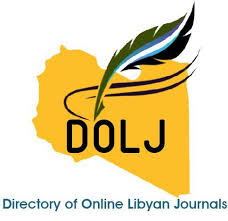Vitamin D Deficiency as a Risk Factor for Metabolic Syndrome: Insights from a Case-Control Study
DOI:
https://doi.org/10.26719/LJMR.18.2.11Keywords:
Vitamin D deficiency, metabolic syndrome, women's health, insulin resistance, high-density lipoprotein, triglycerideAbstract
Background: Vitamin D deficiency disproportionately affects women, posing significant health concerns because of its pivotal role in bone and tooth health and immunity as well as its potential protective effects against certain cancers. Aim: This study investigates the disproportionate impact of vitamin D deficiency on women's health, with a specific focus on metabolic syndrome. Methods: This case-control study examines the correlation between vitamin D levels and various metabolic parameters such as waist circumference, blood pressure, fasting glucose, and lipid profiles. Blood samples were collected to measure serum vitamin D levels, and participants were assessed for components of metabolic syndrome conducted at Misurata Medical Center. A sample of 132 participants aged 18-60 years, including 71 individuals diagnosed with metabolic syndrome and 61 healthy controls with adequate vitamin D levels was used in this study. Results: The study found that 69.01% of women with metabolic syndrome exhibited severe vitamin D deficiency, while 22.53% showed insufficient levels. A significant negative correlation (r = -0.871**, p < 0.01) was observed between vitamin D deficiency and insulin resistance. Moreover, a positive association (r = 0.796**, p < 0.014) was detected between vitamin D deficiency and high-density lipoprotein (HDL) levels, while a negative correlation (r = -769**, p < 0.017) was found with triglycerides and FBS (r = -0.274**, p < 0.018). Among the healthy controls, only 6.81% exhibited metabolic syndrome indicators. Conclusion: Vitamin D deficiency significantly increased metabolic syndrome indicators in the group with the condition, while these indicators remained stable in the control group. This highlights the association between low vitamin D levels and the development of metabolic syndrome. Most participants had severe deficiency, which negatively correlated with insulin resistance and weight, and positively with HDL levels. This emphasizes the need for targeted interventions to address vitamin D deficiency, particularly among women at risk of metabolic syndrome.
Downloads
References
Grundy, S. M. (2020). Metabolic syndrome (pp. 71-107). Springer International Publishing.
Al-Qahtani, D. A., Imtiaz, M. L., Saad, O. S., & Hussein, N. M. (2006). AComparison of the prevalence of metabolic syndrome in Saudi adult females using two definitions. Metabolic syndrome and related disorders, 4(3),204-214
Diniz, A. D., & Coriolano, M. D. (2023). Analysis of the components for classifying Metabolic Syndrome used in older people: an integrative review. Revista Brasileira de Geriatria e Gerontologia, 26, e230077.
Aboul Enein, B. H., Bernstein, J., & Neary, A. C. (2016). Dietary transition and obesity in selected Arabic-speaking countries: a review of the current evidence. EMHJ-Eastern Mediterranean Health Journal, 22(10), 763-770.
ProCon.org. Global Obesity Levels. (2020). Available online at: https://obesity.procon.org/global-obesity-levels/ (accessed June 28, 2020).
Chedraui, P., & Pérez-López, F. R. (2019). Metabolic syndrome during female midlife: what are the risks? Climacteric, 22(2), 127-132.
Chedid, R., Gannagé-Yared, M. H., Khalifé, S., Halaby, G., & Zoghbi, F. (2009). Impact of different metabolic syndrome classifications on the metabolic syndrome prevalence in a young Middle Eastern population. Metabolism, 58(6),746-752.
Gami, A. S., Witt, B. J., Howard, D. E., Erwin, P. J., Gami, L. A., Somers, V. K., & Montori, V. M. (2007). Metabolic syndrome and risk of incident cardiovascular events and death: a systematic review and meta-analysis of longitudinal studies. Journal of the American College of Cardiology, 49(4), 403-414.
Jagelavičienė, E., Vaitkevičienė, I., Šilingaitė, D., Šinkūnaitė, E., & Daugėlaitė, G. (2018). The Relationship between Vitamin D and Periodontal Pathology. Medicina, 54(3), 45.
Roth, D. E., Abrams, S. A., Aloia, J., Bergeron, G., Bourassa, M. W., Brown, K. H., Calvo, M. S., Cashman, K. D., Combs, G., De‐Regil, L. M., Jefferds, M. E., Jones, K. S., Kapner, H., Martineau, A. R., Neufeld, L. M., Schleicher, R. L., Thacher, T. D., & Whiting, S. J. (2018). Global prevalence and disease burden of vitamin D deficiency: a roadmap for action in low‐ and middle‐income countries. Annals of Annals of the New York Academy of Sciences, 1430(1),44–79.
Md Isa, Z., Amsah, N., & Ahmad, N. (2023). The impact of vitamin D deficiency and insufficiency on the outcome of type 2 diabetes mellitus patients: A systematic review. Nutrients, 15(10), 2310.
Ferreira, P. P., Cangussu, L., Bueloni-Dias, F. N., Orsatti, C. L., Schmitt, E. B., Nahas-Neto, J., & Nahas, E. A. P. (2020). Vitamin D supplementation improves the metabolic syndrome risk profile in postmenopausalwomen. Climacteric, 23(1),24-31.
Al-Dabhani, K., Tsilidis, K. K., Murphy, N., Ward, H. A., Elliott, P., Riboli, E & Tzoulaki, I. (2017). Prevalence of vitamin D deficiency and association with metabolic syndrome in a Qatari population. Nutrition & diabetes, 7(4), e263-e263.
Organization w.h.o(2016). World health day2016-who calls for global action to halt rise in and improve care for people with diabetes. Retrieved from https://www.who.int/news/item/06-04-2016-world-health-day-2016-who-calls-for-global-action-to-halt-rise-in-and-improve-care-for-people-with-diabetes
Szymczak-Pajor, I., Drzewoski, J., & Śliwińska, A. (2020). The molecular mechanisms by which vitamin D prevents insulin resistance and associated disorders. International journal of molecular sciences, 21(18), 6644
Contreras-Bolívar, V., García-Fontana, B., García-Fontana, C., & Muñoz-Torres, M. (2021). Mechanisms involved in the relationship between vitamin D and insulin resistance: impact on clinical practice. Nutrients, 13(10), 3491.
Upreti, V., Maitri, V., Dhull, P., Handa, A., Prakash, M. S., & Behl, A. (2018). Effect of oral vitamin D supplementation on glycemic control in patients with type 2 diabetes mellitus with coexisting hypovitaminosis D: A parellel group placebo controlled randomized controlled pilot study. Diabetes & Metabolic Syndrome: Clinical Research & Reviews, 12(4), 509-512.
Szymczak-Pajor, I., Drzewoski, J., & Śliwińska, A. (2020). The molecular mechanisms by which vitamin D prevents insulin resistance and associated disorders. International journal of molecular sciences, 21(18), 6644.
Wenclewska, S., Szymczak-Pajor, I., Drzewoski, J., Bunk, M., & Śliwińska, A. (2019). Vitamin D Supplementation Reduces Both Oxidative DNA Damage and Insulin Resistance in the Elderly with Metabolic Disorders. International Journal of Molecular Sciences, 20(12), 2891.
Nicholls, D. G. (2016). The pancreatic β-cell: a bioenergetic perspective. Physiological reviews, 96(4), 1385-1447.
Holt, R., Petersen, J. H., Dinsdale, E., Knop, F. K., Juul, A., Jørgensen, N., & Blomberg Jensen, M. (2022). Vitamin D supplementation improves fasting insulin levels and HDL cholesterol in infertile men. The Journal of Clinical Endocrinology & Metabolism, 107(1), 98-108.
Hadi, S. T., et al. Alhadithi,H. J., Alkobaese,S. K., Akram, M., & Sareen, A. (2021). The effect of vitamin D3 on some metabolic prosses in human body. In IOP Conference Series: Earth and Environmental Science (Vol. 761, No.1, p. 012121).
Li, J., Mihalcioiu, M., Li, L., Zakikhani, M., Camirand, A., & Kremer, R. .(2018). Vitamin D prevent lipid accumulation in murine muscle through regulation of PPARY perilipin-2 expression. The journal of steroid biochemistry and molecular biology,177, 116-124.
Wood, R. J. (2008). Vitamin D and adipogenesis: new molecular insights. Nutrition reviews, 66(1), 40-46.
Mutt, S. J., Jokelainen, J., Sebert, S., Auvinen, J., Järvelin, M. R., Keinänen-Kiukaanniemi, S., & Herzig, K. H. (2019). Vitamin D status and components of metabolic syndrome in older subjects from Northern Finland (latitude 65 North). Nutrients, 11(6), 1229.
Fu, J., Han, L., Zhao, Y., Li, G., Zhu, Y., Li, Y., ... & Willi, S. M. (2019). Vitamin D levels are associated with metabolic syndrome in adolescents and young adults: The BCAMS study. Clinical nutrition, 38(5), 2161-2167.
Al-Dabhani, K., Tsilidis, K. K., Murphy, N., Ward, H. A., Elliott, P., Riboli, E & Tzoulaki, I. (2017). Prevalence of vitamin D deficiency and association with metabolic syndrome in a Qatari population. Nutrition & diabetes, 7(4), e263-e263.
Moy, F. M., & Bulgiba, A. (2011). High prevalence of vitamin D insufficiency and its association with obesity and metabolic syndrome among Malay adults in Kuala Lumpur, Malaysia. BMC public health, 11(1), 1-7.
Bachali, S., Dasu, K., Ramalingam, K., & Naidu, J. N. (2013). Vitamin d deficiency and insulin resistance in normal and type 2 diabetes subjects. Indian Journal of Clinical Biochemistry, 28, 74-78
Wimalawansa, S. J. (2018). Associations of vitamin D with insulin resistance, obesity, type 2 diabetes, and metabolic syndrome. The Journal of steroid biochemistry and molecular biology, 175, 177-189.
Downloads
Published
Issue
Section
License
Copyright (c) 2024 Hussien A. Elaswdi, Rasha M. Elbbakush, Muftah Abdulssalam Elbahloul, Ayman B. Mustafa, Abdalla R. Elgenaidi, Siraj S. Hamad (Author)

This work is licensed under a Creative Commons Attribution-NonCommercial-NoDerivatives 4.0 International License.
Open Access Policy
Libyan journal of medical Research (LJMR).is an open journal, therefore there are no fees required for downloading any publication from the journal website by authors, readers, and institution.
The journal applies the license of CC BY (a Creative Commons Attribution 4.0 International license). This license allows authors to keep ownership f the copyright of their papers. But this license permits any user to download , print out, extract, reuse, archive, and distribute the article, so long as appropriate credit is given to the authors and the source of the work.
The license ensures that the article will be available as widely as possible and that the article can be included in any scientific archive.
Editorial Policy
The publication of an article in a peer reviewed journal is an essential model for Libyan journal of medical Research (LJMR). It is necessary to agree upon standards of expected ethical behavior for all parties involved in the act of publishing: the author, the journal editorial, the peer reviewer and the publisher.
Any manuscript or substantial parts of it, submitted to the journal must not be under consideration by any other journal. In general, the manuscript should not have already been published in any journal or other citable form, although it may have been deposited on a preprint server. Authors are required to ensure that no material submitted as part of a manuscript infringes existing copyrights, or the rights of a third party.
Authorship Policy
The manuscript authorship should be limited to those who have made a significant contribution and intellectual input to the research submitted to the journal, including design, performance, interpretation of the reported study, and writing the manuscript. All those who have made significant contributions should be listed as co-authors.
Others who have participated in certain substantive aspects of the manuscript but without intellectual input should only be recognized in the acknowledgements section of the manuscript. Also, one of the authors should be selected as the corresponding author to communicate with the journal and approve the final version of the manuscript for publication in the LJMR.
Peer-review Policy
- All the manuscripts submitted to LJMR will be subjected to the double-blinded peer-review process;
- The manuscript will be reviewed by two suitable experts in the respective subject area.
- Reports of all the reviewers will be considered while deciding on acceptance/revision or rejection of a manuscript.
- Editor-In-Chief will make the final decision, based on the reviewer’s comments.
- Editor-In-Chief can ask one or more advisory board members for their suggestions upon a manuscript, before making the final decision.
- Associate editor and review editors provide administrative support to maintain the integrity of the peer-review process.
- In case, authors challenge the editor’s negative decision with suitable arguments, the manuscript can be sent to one more reviewer and the final decision will be made based upon his recommendations.













